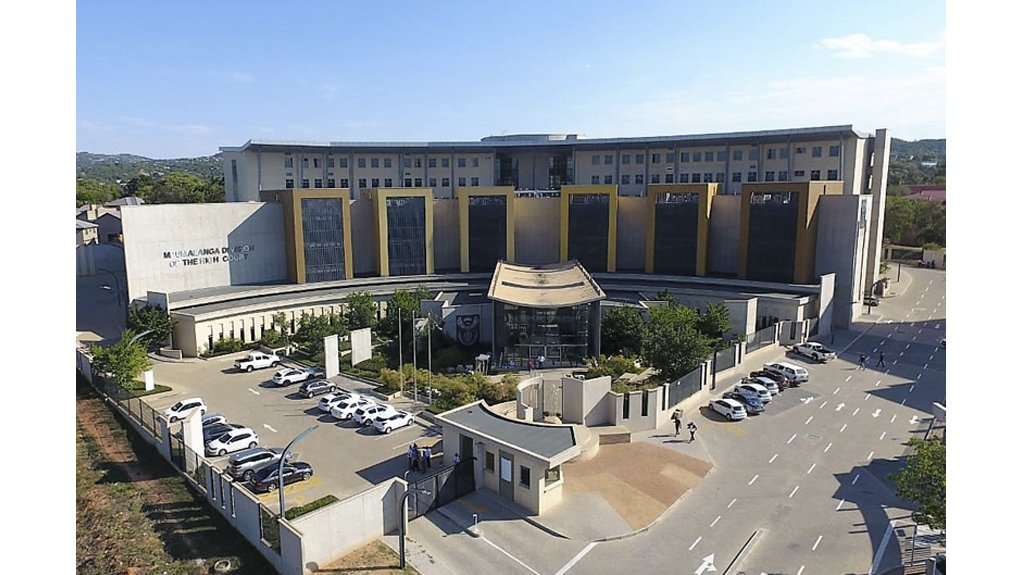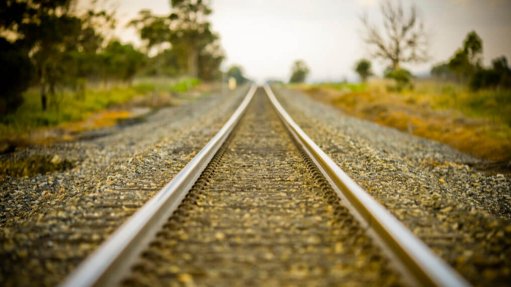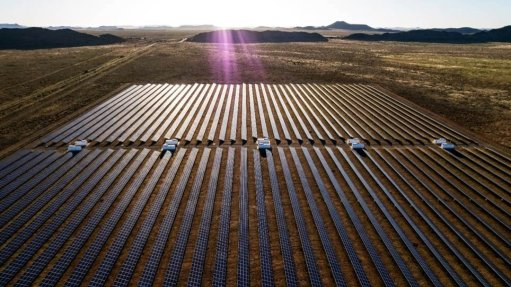Public Works to release RFI in development of green energy, resource efficiency drive


The Mpumalanga High Court, which the DPWI handed over in November 2019, is an example of a building where energy and water saving technologies could be rolled out
The Department of Public Works and Infrastructure (DPWI) plans to release a request for information (RFI) for the Integrated Renewable Energy and Resource Efficiency Programme (iREREP) on September 20, to garner ideas and information into ways to deliver mutual value through strong partnerships across government and the private sector.
The department, as the largest landlord and facilities manager in the country, says it has a responsibility to not only deliver and manage quality infrastructure, but to combat climate change and sustainable development through its mandate, such as providing buildings for government service delivery.
In this regard, the DPWI says its property portfolio, as the largest in the country, is responsible for the consumption of a significant amount of electricity and water and the generation of a significant amount of waste.
Recent studies place the department’s yearly electricity and water consumption at an estimated 4 021 GW/h and 39-billion litres, respectively, with over 822 000 t of waste generated.
This equates to an average yearly expenditure on electricity and water of R2.4-billion and R1.8-billion, respectively.
The Economic Reconstruction and Recovery Plan (ERRP), unveiled by President Cyril Ramaphosa in October 2020, identified infrastructure development as a key catalyst in rejuvenating the economy.
In this regard, the DPWI explains that, because South Africa grapples with load-shedding, water shortages and accelerated effects of climate change, government’s response to these challenges must be citizen-centric.
The iREREP project, also known as the Photovoltaic and Water Savings on Government Buildings Programme, was gazetted as a Strategic Integrated Project (SIP) in July 2020 as part of a credible pipeline of projects in the Infrastructure Investment Plan, which was approved by Cabinet in May 2020.
The SIPs prioritise infrastructure development in South Africa, as envisaged by the Infrastructure Development Act.
PROJECT OBJECTIVE
The iREREP project aims to achieve savings and revenue of over R401-billion by 2050, which can be reallocated to other government priorities, as well as contribute R253-billion directly to South Africa’s gross domestic product.
Also, the DPWI says, 3 800 new small businesses will be developed – the majority being black-owned, while 146 000 jobs will be created and skills development opportunities will be made available for more than 117 000 people.
Further, the project is also envisaged to reduce energy use intensity by between 22% and 45%, water-use intensity by between 30% and 55% and a reduction in waste and diversion of 50% of current waste from landfill sites, saving 12-million tonnes.
Further, the project aims to reduce carbon dioxide and other greenhouse-gas emissions by over 54.5-million tonnes.
Thus far, the iREREP has received National Treasury approval for Phase 1 and has been registered to be implemented in collaboration with the private sector on a full design, finance, build, operate and transfer basis.
The programme is now ready to proceed to Phase 2.
In line with the DPWI’s Green Building Policy, which consolidates the various legislation and policies to meet South Africa’s sustainability targets, the department has translated these targets, which it will implement through the iREREP.
The next phase of the project will involve the issuance of requests for proposals, which is expected to occur later this year.
Public Works and Infrastructure Minister Patricia de Lille says the programme presents a unique opportunity to harness the partnership between government and business to create a prosperous South Africa.
“This is an opportunity for large-scale innovation in government that not only promotes resource efficiency and saves money but it is a major effort to protect the planet against the devastating effects of climate change,” she adds.
Article Enquiry
Email Article
Save Article
Feedback
To advertise email advertising@creamermedia.co.za or click here
Press Office
Announcements
What's On
Subscribe to improve your user experience...
Option 1 (equivalent of R125 a month):
Receive a weekly copy of Creamer Media's Engineering News & Mining Weekly magazine
(print copy for those in South Africa and e-magazine for those outside of South Africa)
Receive daily email newsletters
Access to full search results
Access archive of magazine back copies
Access to Projects in Progress
Access to ONE Research Report of your choice in PDF format
Option 2 (equivalent of R375 a month):
All benefits from Option 1
PLUS
Access to Creamer Media's Research Channel Africa for ALL Research Reports, in PDF format, on various industrial and mining sectors
including Electricity; Water; Energy Transition; Hydrogen; Roads, Rail and Ports; Coal; Gold; Platinum; Battery Metals; etc.
Already a subscriber?
Forgotten your password?
Receive weekly copy of Creamer Media's Engineering News & Mining Weekly magazine (print copy for those in South Africa and e-magazine for those outside of South Africa)
➕
Recieve daily email newsletters
➕
Access to full search results
➕
Access archive of magazine back copies
➕
Access to Projects in Progress
➕
Access to ONE Research Report of your choice in PDF format
RESEARCH CHANNEL AFRICA
R4500 (equivalent of R375 a month)
SUBSCRIBEAll benefits from Option 1
➕
Access to Creamer Media's Research Channel Africa for ALL Research Reports on various industrial and mining sectors, in PDF format, including on:
Electricity
➕
Water
➕
Energy Transition
➕
Hydrogen
➕
Roads, Rail and Ports
➕
Coal
➕
Gold
➕
Platinum
➕
Battery Metals
➕
etc.
Receive all benefits from Option 1 or Option 2 delivered to numerous people at your company
➕
Multiple User names and Passwords for simultaneous log-ins
➕
Intranet integration access to all in your organisation



















